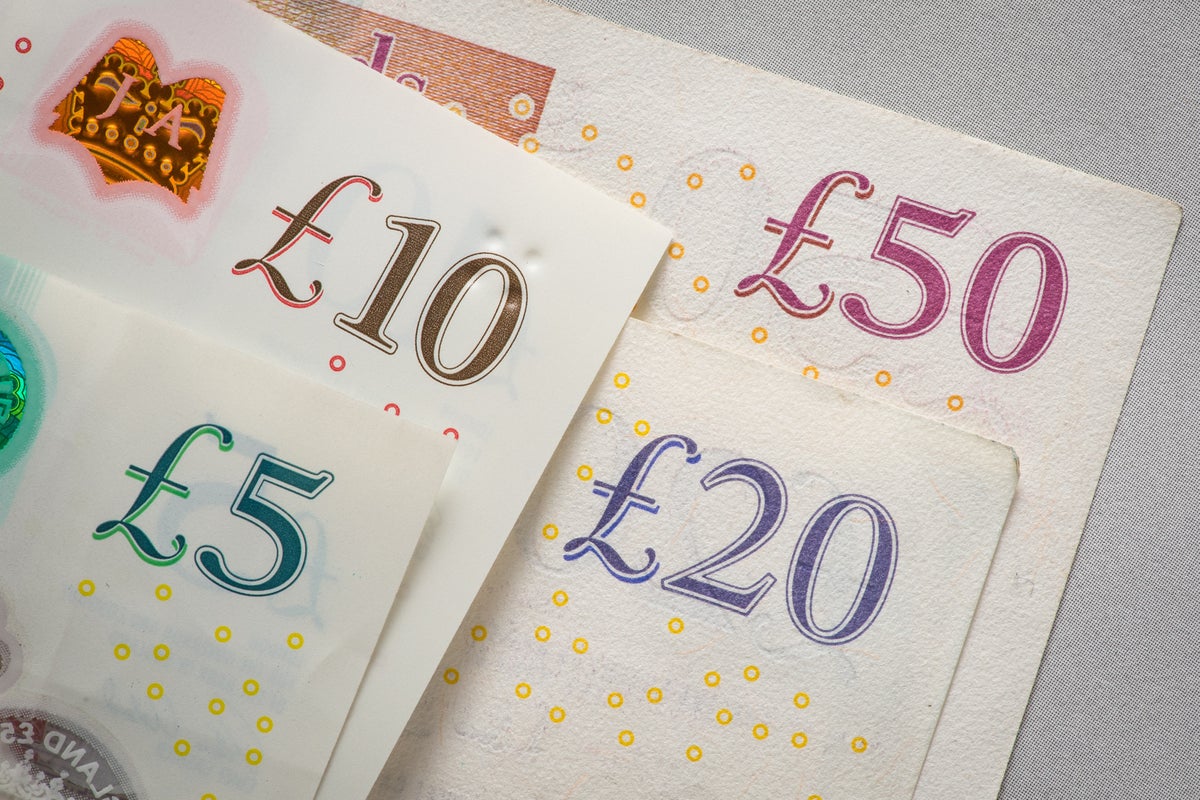
Millions of Britons entitled to receive a one-off £650 grant from the government under former chancellor Rishi Sunak’s plans to address the spiralling cost of living crisis are currently receiving their first instalment of the money.
The cash is being made available to recipients of means-tested state benefits, such as child tax credit, income-based jobseeker’s allowance, income-related employment and support allowance, income support, pension credit and universal credit.
According to the Department for Work and Pensions (DWP), the first tranche of £326 began being paid into accounts from Thursday 14 July, and will continue to go out until Sunday 31, with up to 8.4 million low-income families ultimately set to take delivery.
Officials have warned that delays are possible, however, and that those receiving the working tax credit will get their first and second tranches a little later, in autumn and winter respectively.
The DWP has since confirmed that the majority will receive their second instalment of £324 in “autumn 2022” as homeowners begin to crank up their radiators when the weather turns – and just as the energy price cap is expected to rise dramatically once again – although no more precise date has yet been given.
Mr Sunak’s successor in No. 11, Nadhim Zahawi, said: “I know that people are finding things difficult with rising prices and increasing pressure on household budgets. That’s why we're taking action to control inflation and providing immediate help for households.
“It’s so important that over 7 million vulnerable households have received £326 direct payments so far and there is also more help to come, with 8 million of the most vulnerable households receiving £1,200 of direct support to help with bills over the winter.”
If you are not eligible for the above cost of living payments, the government has laid out a number of other schemes to help Britons through the economic crisis, which continues to squeeze domestic budgets as the price of consumer goods, electricity and fuel all climb while record inflation threatens to lower living standards.
COST OF LIVING: HOW TO GET HELP
- The cost of living crisis has touched every corner of the UK, pushing families to the brink with rising food and fuel prices. The Independent has asked experts to explain small ways you can stretch your money, including managing debt and obtaining items for free.
- If you need to access a food bank, find your local council’s website using gov.uk and then use the local authority’s site to locate your nearest centre. The Trussell Trust, which runs many foodbanks, has a similar tool.
- Citizens Advice provides free help to people in need. The organisation can help you find grants or benefits, or advise on rent, debt and budgeting.
- If you are experiencing feelings of distress and isolation, or are struggling to cope, The Samaritans offers support; you can speak to someone for free over the phone, in confidence, on 116 123 (UK and ROI), email jo@samaritans.org, or visit the Samaritans website to find details of your nearest branch.
Those on any kind of disability benefit, from disability living allowance to the war mobility supplement, will receive £150 in September to help with their living expenses.
Every home across England, Scotland and Wales will receive a £400 discount that will be automatically applied to their energy bills, beginning in October and spread out over six months, while pensioners relying on the winter fuel payment will be given an extra £300 to ensure they do not have to choose between heating and eating.
The household support fund, originally only intended to run from October 2021 to March 2022, has also been extended until March 2023, with the government granting local authorities an extra £1.5bn to hand out over 18 months to residents they deem to be most in need of financial help.
Precisely how much individuals receive could vary between households, depending on their circumstances, as the calculation is left up to councils’ discretion, although £200 is the headline rate.
The process of applying for this begins through your local council’s website, which you can find here by entering your postcode.
Search “household support fund” on your local authority’s website for more details about how funds are allocated and distributed in your area to see whether you are eligible for a grant, and, if so, how much.







